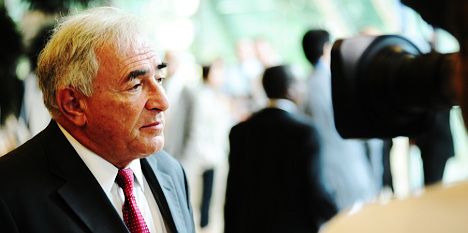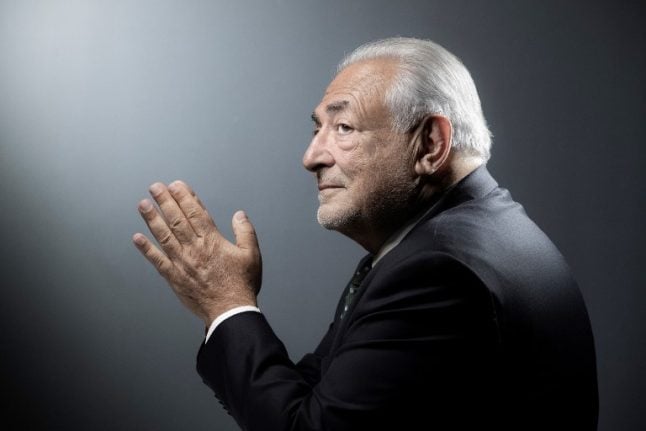The 62-year-old former Socialist minister, who until last year was seen as the frontrunner to replace Nicolas Sarkozy as president of France, had been due to face questioning as a witness, but prosecutors said he was now a suspect.
He arrived at a police station in the northern city of Lille just before his 9am (0800 GMT) appointment for what could be up to 48 hours of questioning about his role in the latest sex scandal to beset his ruined career.
Shortly after his arrival, prosecutors said he would instead be questioned on suspicion of “pimping and misuse of company funds” and was thus not free to leave and could face charges and see his questioning stretch to 96 hours.
Afterwards, if a judge agrees, he could be remanded in custody.
Investigating magistrates want to know whether he was aware that the women who entertained him at parties in restaurants, hotels and swingers’ clubs in Paris, Washington and several European capitals were paid prostitutes.
They will also seek to determine whether Strauss-Kahn knew that the escorts were paid for by funds fraudulently obtained by his hosts from a French public works company for which one of them worked as a senior executive.
Paying a prostitute is not in itself illegal in France, but profiting from vice or embezzling company funds to pay for sex can lead to charges.
The former director of the International Monetary Fund admits that he has led an adventurous sexual life, but denies that he was implicated in pimping or corruption and has indicted he will deny any criminal wrongdoing.
Two northern businessmen, Fabrice Paszkowski a medical equipment tycoon with ties to Strauss-Kahn’s Socialist Party, and David Roquet, former director of a local subsidiary of building giant BTP Eiffage, have been charged.
The pair has alleged links to a network of French and Belgian prostitutes centred on the Carlton Hotel in Lille, a well-known meeting place of the local business and political elite in a city run by the Socialist Party.
In all, eight people have already been charged in relation to the “Carlton affair” — including three executives from the luxury hotel itself, a leading local lawyer and the local deputy police chief, Jean-Christophe Lagarde.
The last of the sex parties is said to have taken place during a trip to Washington and the IMF headquarters between May 11th and 13th last year by Paszkowski and Roquet, in part to discuss Strauss-Kahn’s presidential bid.
One day later, on May 14th, Strauss-Kahn’s career fell apart when he was arrested in New York following allegations that he had subjected chambermaid Nafissatou Diallo to a brutal sexual assault in his hotel suite.
The case against him eventually fell apart when prosecutors began to doubt Diallo’s credibility as a witness, and Strauss-Kahn returned home to France to face further investigations and scandal.
First, 32-year-old French writer Tristane Banon accused him of attempting to rape her in 2003. Prosecutors decided that there was prima facie evidence of a sexual assault, but ruled that the statute of limitations had passed.
Then, Strauss-Kahn’s name was linked to the entirely separate Carlton case after police probing a ring linked to notorious Belgian pimp “Dodo la Saumure” — Dominique Alderweireld — were given his name by suspected escorts.
The involvement of the businessmen in the vice ring has raised suspicions that they intended to curry favour with a presidential contender by procuring women for him, but they are reported to have denied this during questioning.



 Please whitelist us to continue reading.
Please whitelist us to continue reading.
Member comments